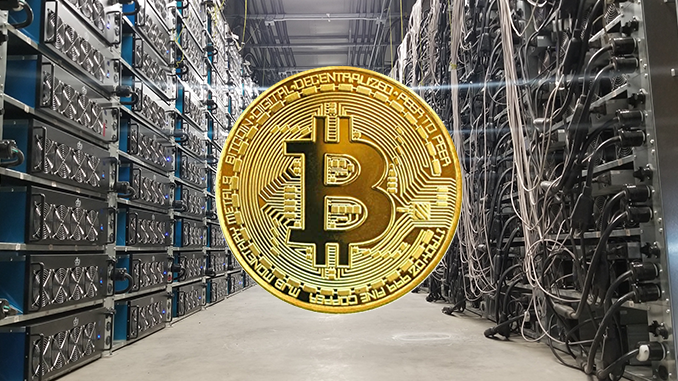
Bitcoin mining is often touted as a good opportunity to make extra money. How does it actually work and is there really a profit in it?
Bitcoin’s protocol states that a bonus is paid out with each new block of the blockchain. Bitcoin mining is all about these current 6.25 BTC mining rewards. Currently more than 300,000 US dollars for each Bitcoin miner who validates a new block – the sum sounds tempting. But before that, difficult cryptographic puzzles have to be solved, and this requires the help of computers. Basically, Bitcoin mining distinguishes three types of hardware:
1. CPU/GPU Bitcoin mining.
This method was still promising in the early years of Bitcoin mining, when a few network points updated the blockchain of BTC and accordingly the level of difficulty and competition for Bitcoin miners was low. Today, the processors (CPU) and graphics processing units (GPU) of commercially available laptops and PCs are no longer capable of competing in Bitcoin mining against highly sophisticated specialized hardware.
2. FPGA Mining
FGPA (Field Programmable Gate Array) stands for integrated circuits. These can be optimized for Bitcoin mining and come up with hashrates of up to 750 MH/sec. Hashrate is the unit in which the performance of a computer for mining is measured. And even though in FPGA Bitcoin mining the hashrate is significantly higher than that of normal CPUs and GPUs – in the competition for mining rewards even this method is completely obsolete.
3. Bitcoin mining with ASIC chips
The current standard for Bitcoin mining is called ASIC (application-specific integrated circuit). These are circuits that are designed specifically for a task. ASIC chips for Bitcoin mining will mostly achieve 90+ TH/sec hashrates in 2021, outstripping the competition by a long shot.
Profit prospects in Bitcoin mining
With the values hashrate, power consumption, power price and price of BTC, it can be reliably calculated whether Bitcoin mining can be profitable. You can find a model calculation from us here and an online calculator for Bitcoin mining for example here. The results are clear: With German electricity prices averaging around 0.30 euros per kilowatt hour (KWh), you pay more for Bitcoin mining even with new and energy-saving ASIC chips.
The situation is different where electricity can be purchased for around $0.10 per KWh. Cheap electricity was the argument for Bitcoin mining in China before the BTC miners were politically expelled from there since summer 2021. In individual regions of the U.S. and Russia, however, as well as some smaller countries, Bitcoin miners are encountering attractive levels of electricity price and legal certainty to run their business profitably.
If you have found an individual way out of the electricity price trap in Bitcoin mining, you should bring your computer capacities into a mining pool. There you have to consider a small fee to the pool for your calculation, but you are in the race for the mining rewards by the interconnection of computer capacities on a large scale. One place to start is the mining pool of Binance and established alternatives are called AntPool and F2Pool.
Conclusion: Bitcoin mining usually makes no sense in Germany
Pushy advertising for Bitcoin mining is unfortunately not uncommon and even if it refers to reputable mining pools, the model calculations used are almost always naive. After all, electricity is quite expensive in Germany compared to other countries, and the price of electricity in this country tends to continue to rise. If you calculate realistically, you have to take into account the acquisition costs for ASIC chips and the time required for Bitcoin mining. Therefore, we can only advise: Under normal circumstances, you should keep your hands off Bitcoin mining in Germany, because you would only be starting a costly hobby and would not get anywhere near the profits you had hoped for. By the way, this also applies to Ethereum mining, where the technological approach differs in details, but in the end the electricity costs are an insurmountable hurdle.
Best place to buy Bitcoin:

Leave a Reply